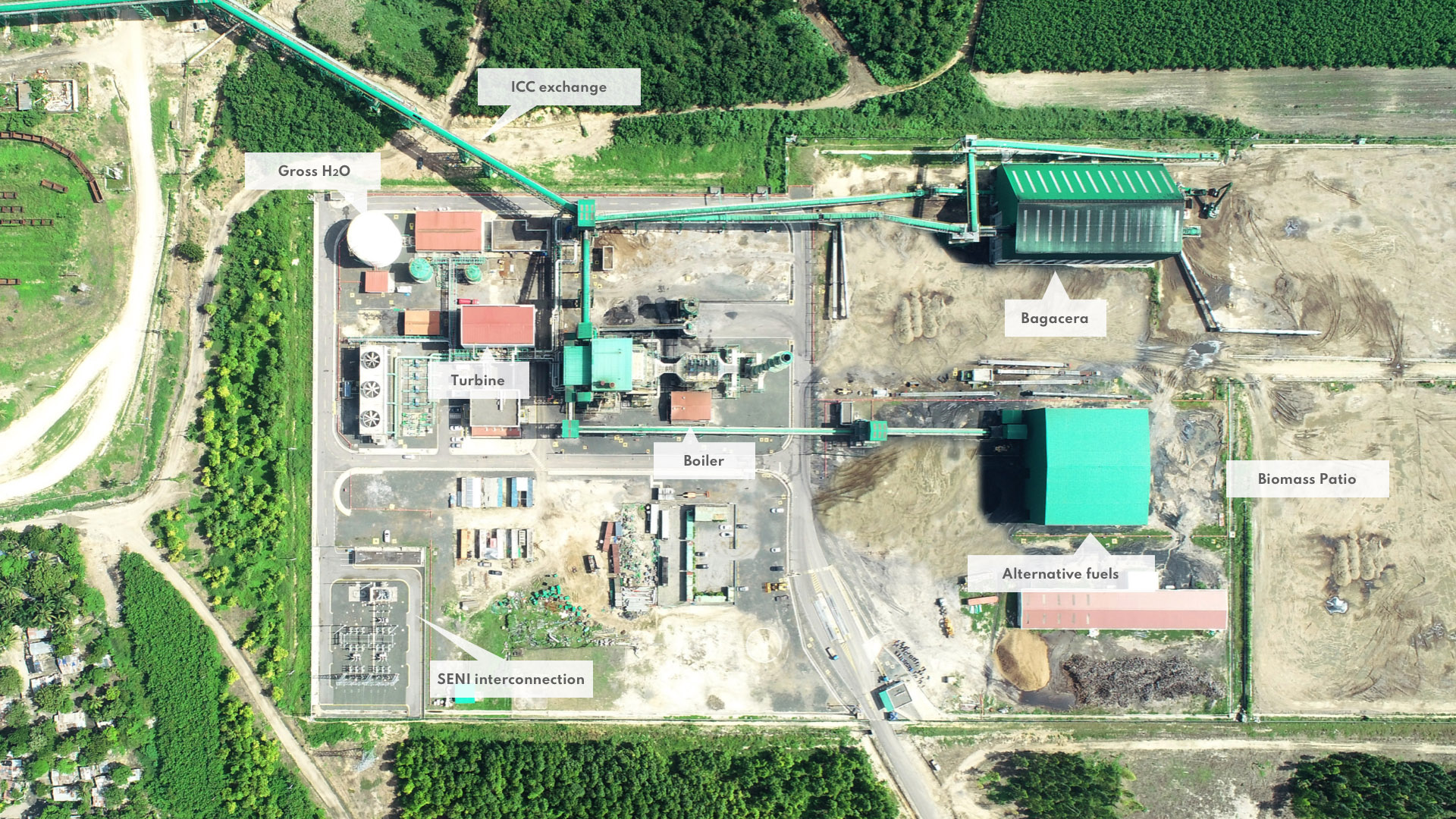A plant that generates with quality
Safe, sustainable and environmentally friendly energy
All of SPBE’s industrial processes are audited to ensure that its production meets the highest quality standards in the energy sector. During these check-ups and evaluations, the company monitors power generation to ensure that it is safe, sustainable, and environmentally friendly. SPBE’s quality standards derive from its cogeneration technology because it is the most efficient way to produce energy. Among the most important parameters we can highlight the following:
1 – Renewable fuels
At SPBE, the fossil fuels used by conventional generators to produce energy are replaced 100% by the use of sugarcane bagasse. During the cogeneration process, our plant consumes 311,275 tons of biomass instead of the 157,552 tons of coal required to obtain the same amount of energy.
2 – Ash reduction
Cane bagasse contains 2% of ash, less than the 7% present in coal. Therefore, the combustion of bagasse in the boiler represents a 43.7% reduction of particulate material generated as ash. These residues are used to produce compost that replaces chemical fertilizers in CAEI’s fields and is added to cement plants for their cement production process.
3- High efficiency equipment
Thanks to this kind of equipment, SPBE does not have to rely on the auxiliary equipment needed in a conventional plant. This means that the plant saves on self-consumption of energy. Currently, the percentage of this saving is around 9% compared to a conventional generator, whose self-consumption of energy ranges between 12 and 15%.
4 – Production costs
The cogeneration process carried out at SPBE presents a better performance in terms of production cost (US$/Kwh). The audited production cost for production with coal is US$119.3/Mwh, while for generation with renewable fuel it represents US$63.4/Mwh.
